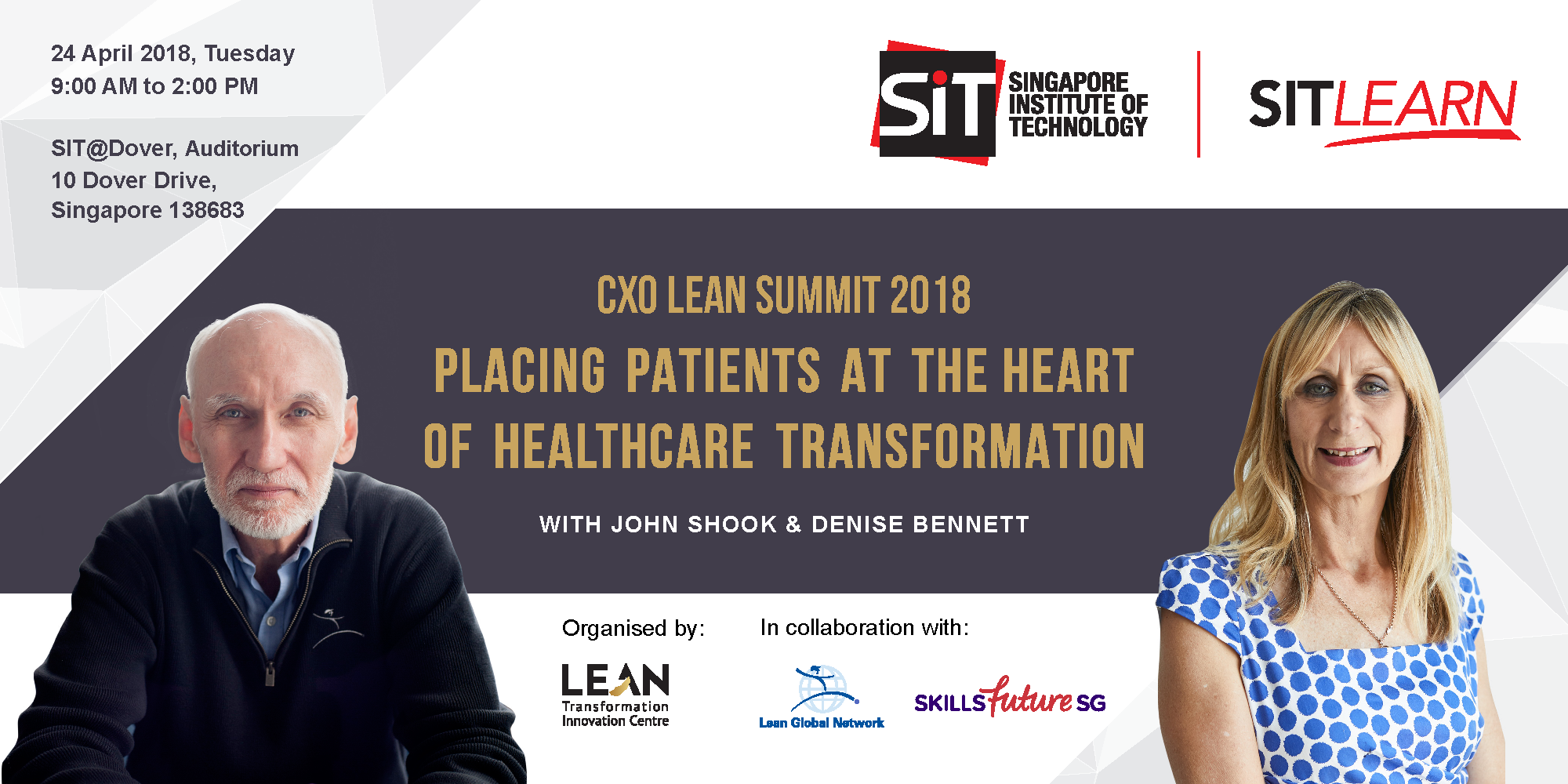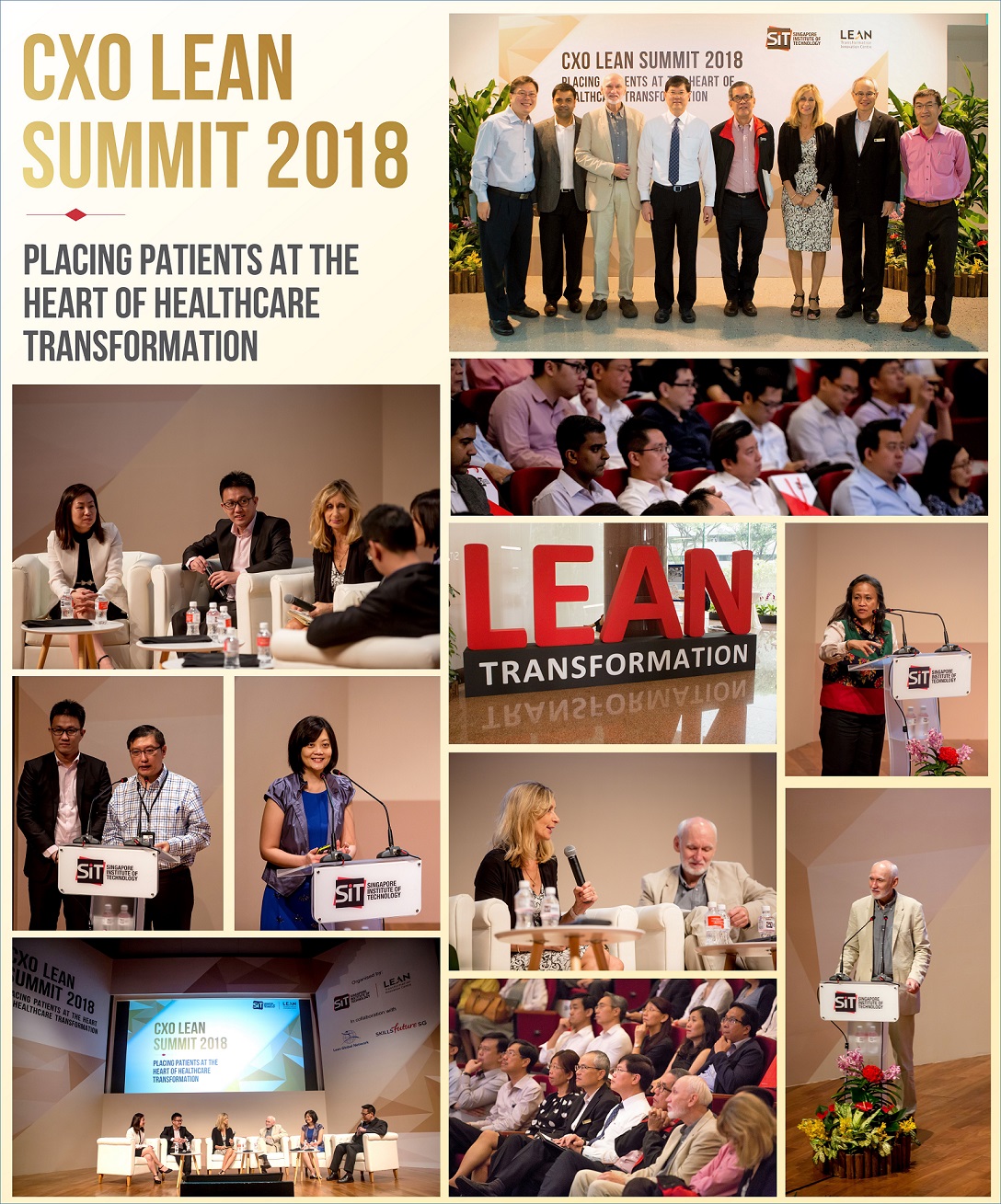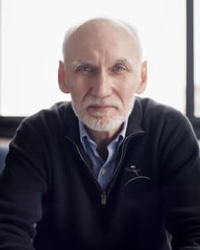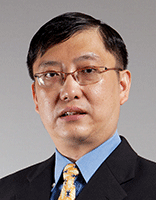![[FA] SIT One SITizen Alumni Initiative_Web banner_1244px x 688px.jpg](/sites/default/files/2024-12/%5BFA%5D%20%20SIT%20One%20SITizen%20Alumni%20Initiative_Web%20banner_1244px%20x%20688px.jpg)
CXO Lean Summit 2018
Placing Patients at the heart of Healthcare Transformation.

The Lean Transformation Innovation Centre held its annual CXO Lean Summit on 24 April 2018. The theme for this year’s summit was ‘Placing Patients at the Heart of Healthcare Transformation’.
John Shook, Executive Chairman of the Lean Global Network and Lean Enterprise Institute, USA, delivered his keynote speech on Lean Thinking in Healthcare. He shared how organisations can build the capability of their employees and align their problem-solving activities to strategic organisational goals.
Denise Bennett, Executive Director of the Australasian Lean Healthcare Network and Lean Coach of the Lean Global Network also delivered her plenary talk on ‘Placing the patient front, and centre, using Lean thinking and practice’. This was followed by company sharings by National Heart Centre Singapore, Yishun Community Hospital and Mount Alvernia Hospital, alongside SIT Faculty, A/Prof Genedine Lim and A/Prof Malcolm Low, on their experiences in Lean transformation.
More than 300 participants from many healthcare organisations at different stages of their Lean transformation journey brought the summit to a resounding success.

-
Featured Speakers

Keynote Speech
John Shook
Executive Chairman
Lean Global Network and Lean Enterprise Institute, USAWhat is True North for an organisation? How do we develop effective problem-solvers? In this annual Lean conference, John will share how leaders can align the problem-solving activities of employees with strategic priorities to radically and sustainably improve organisational performance. John will also share the benefits of the Lean Transformation Framework and Strategy Deployment, and how it is applied in the context of healthcare organisations.

Plenary Talk
Denise Bennett
Executive Director
Australasian Lean Healthcare Network and
Lean Coach, Lean Global NetworkLean Thinking and Practice focuses on value to customers. In the area of healthcare, patients are THE most important customer. With an increasing focus on patient-centric care which goes beyond quality healthcare services, Denise will share how organisations can transform by designing their processes and practices around patients, thus delivering true value to them.


Lean Insights Sharing byA/Prof Genedine Lim
Lean Advisor and Programme Director (Nursing)
Singapore Institute of TechnologyHow can Lean be applied within local organisations? What can we do in order to get ‘buy-in’ from our employees? How can we use technology to augment our Lean efforts? Hear from A/Profs Genedine and Malcolm as they share about how SIT collaborates with local healthcare organisations and companies who are embarking on their own Lean journeys.
-
Programme Overview
21 & 23 April 2018: Pre-Summit Masterclasses
Topic Lean Coach Lean Masterclass:
Enhance organisational excellence using the Lean Transformation Framework and Value Stream Improvement
Karl Ohaus and A/Prof Mustafa Shabbir Kurbanhusen Lean Masterclass:
Beyond Lean Tools and Projects for Healthcare
Denise Bennett 24 April 2018: CXO Lean Summit 2018
Time programme 8.15am
Registration and Breakfast 9.00am
Welcome Address
Prof Tan Thiam Soon, President, Singapore Institute of Technology9.10 am Opening Address
A/Prof Benjamin Ong, Director of Medical Services, Ministry of Health9.20 am Keynote Speech
Mr John Shook, Executive Chairman, Lean Global Network and Lean Enterprise Institute, USA10.00 am Plenary Session
Ms Denise Bennett, Executive Director, Australasian Lean Healthcare Network and Lean Coach, Lean Global Network10.30 am Tea Break 11.00 am Sharing by Local Healthcare Organisations and SIT Faculty 11.45 am Panel Discussion with Guest Speakers 12.30 pm Closing Remarks & Lucky Draw 12.45 pm Lunch Reception 2.00 pm End of Programme -
Pre-Summit Masterclass I: Enhance organisational excellence using the Lean Transformation Framework and Value Stream Improvement
Course Synopsis
A value stream is the process steps that occur in order to provide the product, service and/or experience for a customer. All organisations have one or more value streams that deliver value to their customers. In this 2-day masterclass, explore how the Lean Transformation Framework (LTF) provides a lens for organisations to embark on a Lean Transformation for productivity enhancement through the powerful methodology of Value Stream Improvement.
What You Will Learn
Participants will learn about the 5 key elements of the Lean Transformation Framework:
- Strategy deployment
- Process improvement
- Leader behaviour & management systems
- Manpower (capability) development
- Organisational mindset & culture
Through highly engaging presentations, group activities and hands-on exercises, participants will learn:
- What is the Lean Transformation Framework?
- Why the situational approach in the LTF is critical to a successful Lean Transformation
- Use the Value Stream Approach to begin Strategy Deployment
- Chart Primary and Support Value Streams
- How to concurrently improve the capability and capacity of both value streams and people
- The cycle of ‘Plan, Do, Check, Act’ Problem-solving as a powerful continuous improvement tool
- How to engage your organisation in a Continuous Improvement mindset
Course Outline
- Introduction to the Lean Transformation Framework
- Value stream improvement methods
- Creating a sustainable Lean culture
- Building people capability for problem solving and continuous improvement
- Sharing of case studies
-
Pre-Summit Masterclass II: Beyond Lean Tools and Projects for Healthcare
Synopsis
Many healthcare organisations introduce Lean thinking concepts and tools in the form of projects. These projects feel like yet another thing to learn about and include in our already busy work day. This masterclass will explore the use of Lean Thinking and Practice as a management or operating system, providing a framework for creating stability in work areas, deploying and meeting important team level metrics that link to organisational goals, and addressing problems that occur on a daily basis. Daily management systems ensure that the value stream improvement sustains beyond the life of the project and ensure that precious project resources were not wasted.
Course Outline
• Key concepts of Lean healthcare
- What is a Lean Management System and what you would expect to see in an organisation where a mature system exists
- Importance of a Lean Management System in healthcare
- Thinking, practices and tools that comprise a Lean Management System
- Steps for designing and implementing a Lean Management System suitable for healthcare across an organisation
Learning Outcomes
Through instruction, discussions, practical exercises, simulations and application to your own work setting, participants will:
- Understand the key concepts of Lean healthcare
- Learn the concept and value of a Lean Management System
- Understand the central components within a Lean Management System
- Acquire important Lean tools that support a Lean Management System
- Be able to directly apply the concepts to their work own organisations / teams.
- Write a strategic A3 to share the benefit of a Lean Management System with their colleagues.
- Identify next steps to progress the design and deployment of a Lean Management System in their organisation














